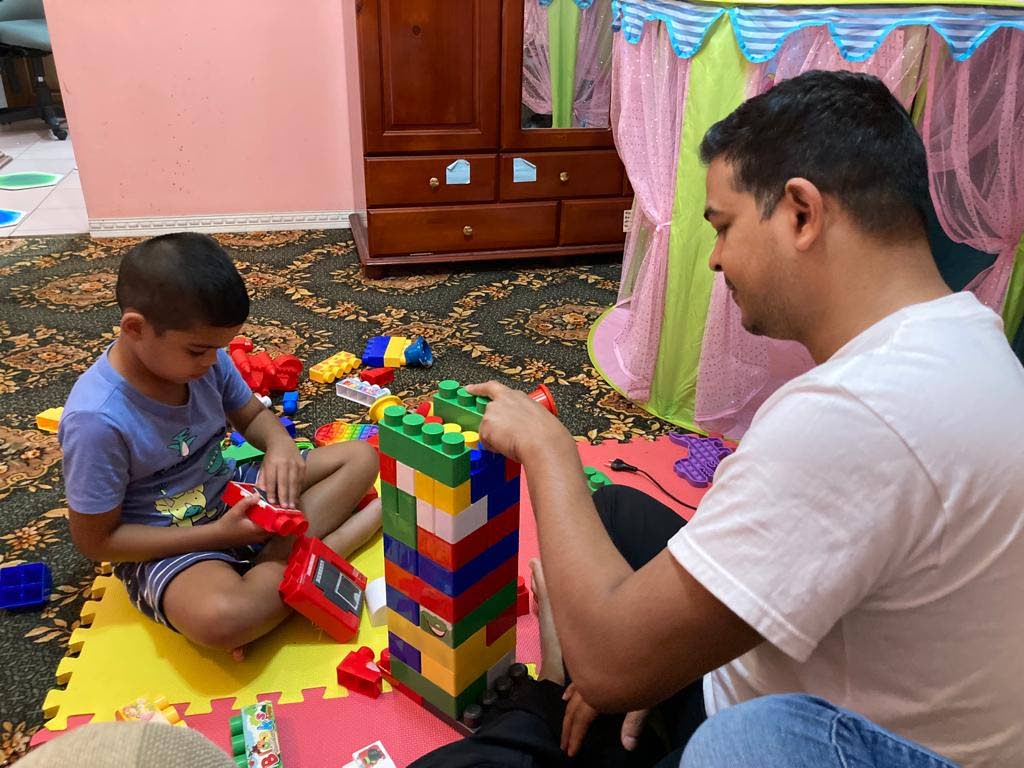Autism and expectations dilemma

Dr Radica Mahase
“When my son was born, I was the happiest man alive. I had big dreams and hope and expectations for my child. He would play football just like me, he will learn music and we would go on hikes. I was excited and happy to have a mini-me to teach, to lime with, to do fun things with. Ten years after his autism diagnosis and I had to change my expectations.
"The hopes and dreams are still there and on evenings we still go try to kick some ball, most of the time he doesn’t even bother with the ball and just run all over the field. I had to rethink all the things I had planned for him and find things that he is interested in. Initially it was tough, I didn’t know how to let go but now I understand that just loving my child and always giving him opportunities is all I need to do as a parent.”
Michael is just one of many parents who had high expectations of their children and had to readjust expectations when their children are diagnosed with developmental disabilities such as autism. Many parents claim the diagnosis crushed their dreams for their children. In most cases, these dreams are of their children becoming high achievers and given the nature of our society this is usually in academics or sports, among others.
In the case of special needs, parents feel conflicted. Some parents underplay their child’s autism/special needs diagnosis and end up in denial for a while. They believe that the child will grow out of it or tell themselves that it’s not really bad and the child doesn’t really have a problem. Some tend to compare their child to others, and we often hear things like “my son has autism but it’s not bad as some of the children in his class” or “this other child has it real bad but my child does manage okay.”
There are also the parents who want to see their child as gifted, as a savant. If the child is much more advanced in one area, they use this to comfort themselves and to "offset" the slower development on other areas. We hear things like, “My son is really good with maths, even though he doesn’t talk.” They may push their children to do multiple activities even when the child is overwhelmed and struggling.

On the other end, there are also those parents who don’t expect their children to accomplish anything much, especially if they have been diagnosed with severe autism. Too many parents become too protective of their children, many times not allowing them to experience new things. Some parents give in to everything the child wants or are sometimes afraid to push the child to do more than he/she is capable of. Many are afraid that their child will have meltdowns. In these cases, parents’ behaviour can limit their child’s development.
In some cases, parents’ expectations of their children are shaped by their religious beliefs. Some try to justify the child’s special needs – “God will fix my child” or “It’s just his/her karma” and in some cases, they don’t push for interventions, leaving the child without the help he/she needs. In most cases there is the desire for normalcy, parents want their child to be like neurotypical children and any sign of progress or reaching any milestones as a step towards being "normal."
It is often very traumatic for parents to accept that their children are on the autism spectrum or has a special need or any disability. It is often difficult for parents to change their expectations and many parents go through a grieving stage – where they must let go of the dreams they had for their child. Some may never fully accept this and continue to have unrealistic expectations of their children, which only create more conflict and unhappiness as the child grows up.
At the same time, when parents have realistic expectations, they can help their children to develop their full potential. There is a thin line between pushing your child to develop and grow and learn and having unrealistic expectations. If you convince yourself that your child is gifted in one area but don’t help your child to develop in other areas, then you are not giving your child a fair chance. If you try to understand your child’s strengths and weaknesses, you can help your child.
Sofia Yassine, a mentor and writer, notes, “By definition, an expectation is a belief something will happen in the future. So, if you expect growth, you must start believing in his/her growth instead of only seeing his/her current level.” Yassine notes that, “Sometimes, we get so caught up in the diagnoses, labels, preparations, and expectations that they begin to take over. We forget they are not end-all-be-all indicators of how things could be in the future. We forget that without all these frames of reference, the world still goes on.”
For parents who are unsure, according to Yassine, “The simplest way to ensure your expectations are not hurting the growth of an individual with special needs is by asking yourself if you’re helping him/her reach his/her potential. Are you challenging him/her in a healthy way that allows him/her to see you believe in his/her abilities? Are you providing opportunities for him/her to grow in ways that align with his/her strengths? Are you introducing him/her to tasks and concepts within his/her skill range, so he/she continues to feel successful?”
Radica Mahase is the founder/director of Support Autism T&T

Comments
"Autism and expectations dilemma"